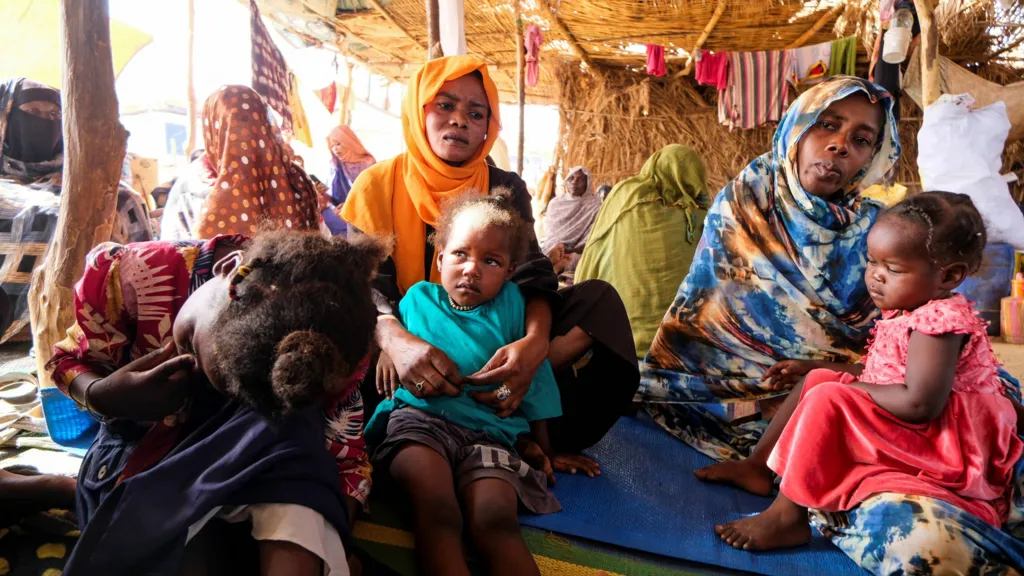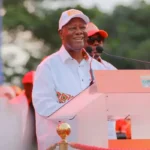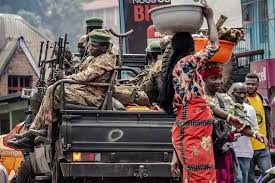Trade unions in Lesotho have accused the police of unlawfully blocking a planned protest march over massive job losses in the country’s struggling textile industry, sparking a growing debate over the right to peaceful assembly and the state’s commitment to democratic reform.
The unions, representing thousands of workers in the textile and garment sector, had planned to march last Friday to deliver a petition to Prime Minister Samuel Matekane, highlighting rising unemployment and uncertainty in the industry. However, police denied permission for the march, citing alleged administrative shortcomings in the unions’ application a move the organisers have condemned as an “unlawful obstruction” of their constitutional rights.
National Clothing Textile and Allied Workers Union General Secretary Sam Mokhele said the coalition followed all legal procedures required under Lesotho’s Public Meetings and Processions Act of 2010, yet Maseru District Commissioner Tšeliso Moerane rejected their request. “We are not satisfied with the commissioner’s response because it is not based on the law that governs processions and meetings in this country,” Mokhele wrote in a letter to the police minister. “Procession is a right protected by the Constitution. We have therefore sought the minister’s urgent intervention.”
Mokhele added that if the minister fails to act, the unions will take legal action to defend their right to protest. “We are waiting for the minister’s response, but we are ready to seek legal redress if this pattern of denial continues,” he told GroundUp.
The unions say their march aimed to draw attention to worsening job losses caused by uncertainty over the renewal of the African Growth and Opportunity Act (AGOA) and the lingering effects of the 15 percent tariff introduced by former US President Donald Trump, which has hurt Lesotho’s textile exports.
In a letter dated 23 October, Commissioner Moerane argued that the unions’ submission had “crucial omissions,” including failure to specify the number of participants, identify organisers responsible for maintaining order, secure a Maseru City Council permit, or provide proof of prior communication with the prime minister’s office. While acknowledging the right to assemble, Moerane said police must “protect life and property and promote peace and well-being.”
Union leaders, however, insist that none of those conditions are required by law. “The police are imposing new bureaucratic barriers that are not part of the Act,” said Mokhele. “These same routes and venues have been used before without any demand for letters from the prime minister’s office or city council. The law has not changed — only the attitude of those enforcing it.”
The unions claim their notice filed on 8 October fully complied with the law, but police delayed their response and later added new requirements. “These demands amount to administrative obstruction,” the unions said in a joint statement. “The police’s failure to respond promptly to our lawful notice in practice amounts to a denial of the right to peaceful assembly.”
Frustrated by repeated denials of protest permits, the unions and several civil society organisations have appealed to regional and international bodies, including the Southern African Development Community (SADC), African Union Commission, Commonwealth Secretariat, and International Labour Organisation. In a letter dated 20 October, they accused the police of “continued suppression of the right to peaceful assembly and protest,” warning that such actions undermine the country’s reform agenda and democratic credibility.
“The right to peaceful protest is not an act of defiance but a democratic instrument of accountability and participation,” their letter stated, urging global and regional institutions to monitor Lesotho’s handling of future demonstrations.
The prime minister’s office has since reached out to the unions, calling for dialogue instead of street protests. However, union leaders say the meeting was an attempt to dissuade them from demonstrating. “Yes, the prime minister invited us, and we met him,” Mokhele confirmed. “But the meeting was not successful. We received the invitation late, and not all unions could attend. Our grievances cannot be resolved behind closed doors.”
A senior government official, Khosi Makubakube, denied the accusation, saying the prime minister only sought engagement and open dialogue. “The meeting was unsuccessful only because some unions decided not to come. The claim that they were invited late is not true,” he said.
Since the current administration took power in 2022, several civil groups including students, consumer advocates, and youth movements have accused police of using new “procedural hurdles” to block protests. Critics argue that this growing pattern of restrictions is eroding Lesotho’s democratic space and silencing dissent.
As the unions prepare to take their case to court, the standoff highlights a deeper struggle between civic rights and state control in Lesotho’s evolving democracy. For thousands of workers facing economic uncertainty, the right to protest has become not only a legal battle but a fight for survival and dignity.














Leave a comment